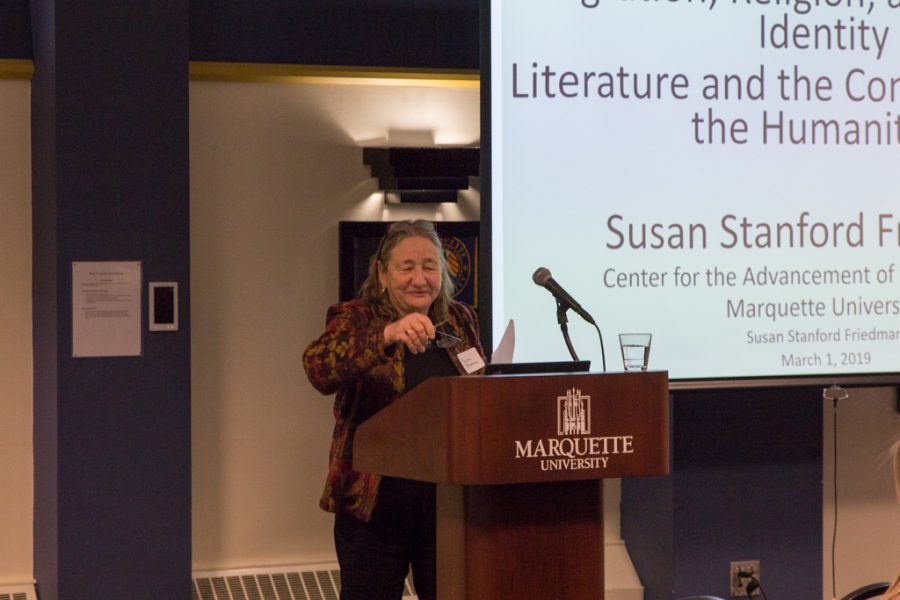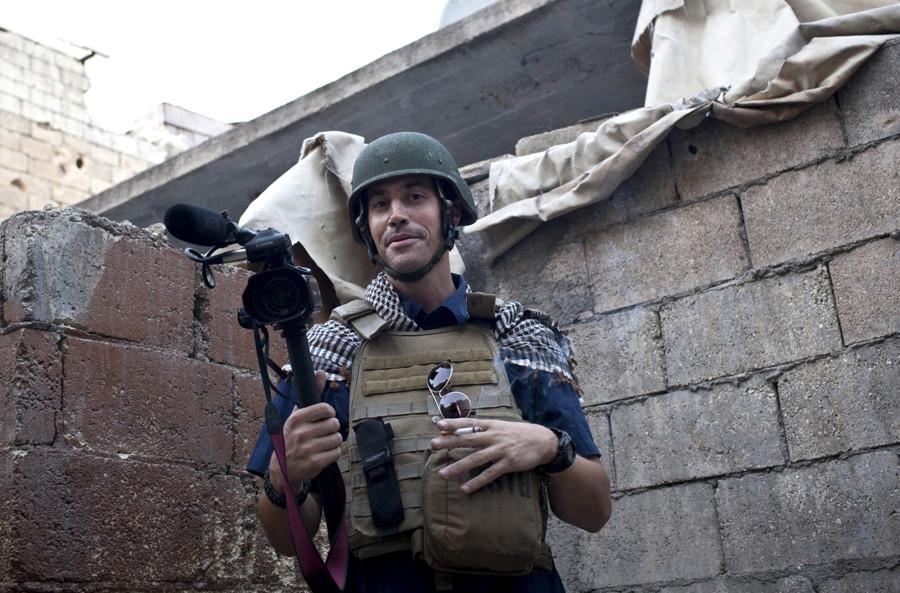“I’m convinced that at the heart of every student at Marquette there is a love for the humanities and as a society, we don’t honor that well enough,” Melissa Shew, visiting assistant professor in philosophy, said.
The Center for the Advancement of the Humanities hosted Celebrating the Humanities at Marquette on Friday and Saturday, including speeches and panel conversations on the different humanities subjects.
According to the Klinger College of Arts and Sciences homepage, the humanities are defined as any studies that seek to understand and interpret the human experience, such as literature, language, history, religion and philosophy.
Maggie Nettesheim-Hoffmann, program coordinator for the Graduate Student Career Development Initiative and a Ph.D. candidate in the Department of History, said this weekend was the inaugural conference for “Celebrating the Humanities.”
“Marquette also has an undergraduate student conference and graduate student conference for the humanities, but they don’t have the same level of centrality that the center provides,” Nettesheim-Hoffmann said.
The CFAH put together a committee to organize the different events with over 20 different speakers and panelists.
The committee consisted of Shew; James South, director of the Center for the Advancement of the Humanities; Sarah Kizuk, assistant director of the CFAH; Brittany Pladek, assistant professor in the English department; Peter Staudenmaier, assistant professor of history; and the Rev. John Thiede, a Jesuit and associate professor in theology.
The conference built up to the two keynote speakers: Susan Stanford Friedman, Hilldale professor and Virginia Woolf professor of English at University of Wisconsin-Madison, and the Rev. Kevin Burke, vice president for mission at Regis University.
Friedman spoke Friday night, presenting, “Migration, Religion And National Identity; Literature and the Contributions of the Imagination.” She said she began public speaking about women’s issues, women’s writing, women’s creativity in the arts and women’s studies in 1975.
For her keynote, Friedman said she was particularly inspired by the writings of Muslim female authors.
“Their novels, memoirs and poems are lively, often funny, sad and powerful,” Friedman said. “They help all of their readers understand what their life is like, especially when their religion is so often greeted with fear and ignorance.”
Friedman said she believes that universities have a responsibility to create a two-way dialogue between campuses and the larger community.
“I do not see universities and colleges as ‘ivory towers’ where faculty and students can retreat from the larger community and the issues of the day,” Friedman said.
Reflecting on the state of our country, Friedman said how impressed she was by how politically active the younger generation is.
“This generation is very aware there is a lot at stake, you can’t just be angry, you gotta do something about the things that are wrong in this world,” Friedman said.
Saturday night, Burke gave his keynote, “Humanities and Human City: Contributions from the Jesuit University,” discussing the crises of despair, theology, division and how Jesuit universities play an important role in the humanities. He said he believes the humanities are in danger and often overlooked due to how polarized our society is.
“We have to resist the temptation to feel contempt to those who are contemptuous of us,” Burke said. “We need to make a case for the importance of the humanities just as we have with theology.”
The events also included student speakers. Chris Gregorio, a senior in the College of Arts & Sciences, said he was encouraged by Shew to present one of his papers, “Gloria Anzaldúa’s La Facultad: A Common Capacity?”
“Speaking was a great experience, people from all different backgrounds asking all kinds of questions from various angles bring up things you would not have thought of before,” Gregorio said.
Pladek said there was a high demand when they announced sign-ups for faculty and students to present at the conference.
“We actually ended up not taking all the proposals because we got so many, which made the decision so hard, but it’s also a testament to excitement for the humanities on campus,” Pladek said.
South said the CFAH has a unique opportunity to bring the community together.
“We need to raise the awareness about the amazing work being done in the humanities here at Marquette because it tends to happen only within certain departments, so bringing in that interdisciplinary aspect has been so important,” South said.
Burke said people tend to forget that these events are going on on campus.
“Students walk by and (don’t) realize how important these events are, the most important thing is that the people currently here showed up,” Burke said.
Shew said Celebrating the Humanities is just one of the first steps of growing the CFAH.
“These events are really important for the human spirit, our lives get super busy, things get covered over, what this does is give us a way to attune ourselves and reset,” Shew said.


